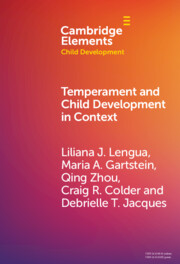Refine search
Actions for selected content:
1 results

Temperament and Child Development in Context
-
- Published online:
- 22 November 2024
- Print publication:
- 28 November 2024
-
- Element
- Export citation
